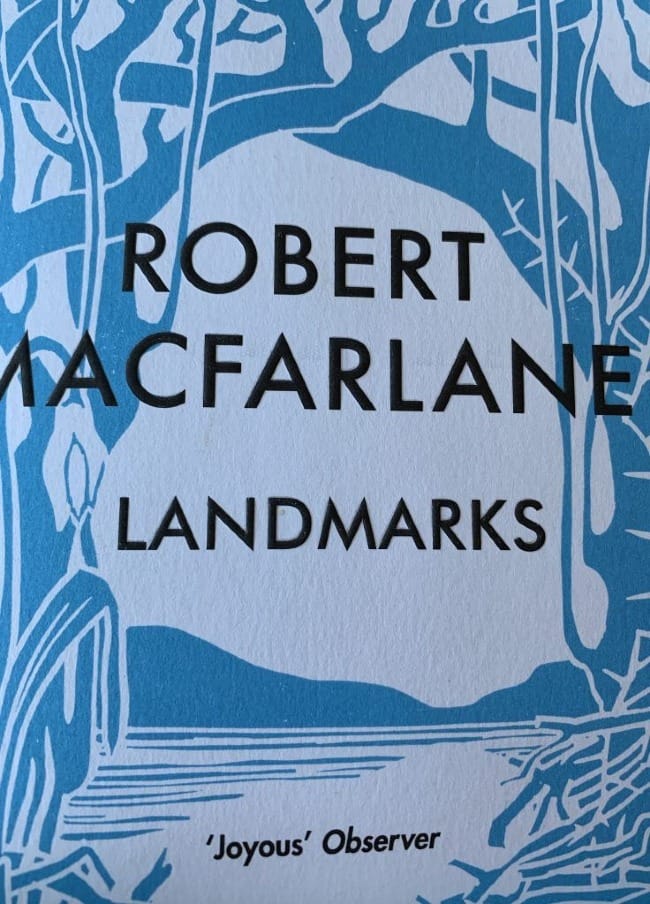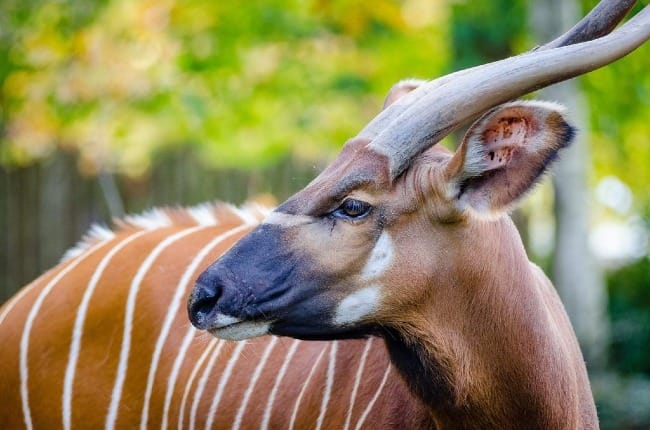Today, The Art of Creation welcomes back guest writer and Circlewood friend, Christine Sine.
This post was originally published on Christine's blog, Godspacelight.
“We have stunned the world out of wonder” says Robert MacFarlane in his fascinating book Landmarks. He goes on to suggest that “once a landscape goes undescribed and therefore unregarded it becomes vulnerable to unwise use or improper action.” I think the same is true of animals and even something as small as an insect or the microbial bacteria in the soil. Not just a landscape or an animal I speculate as I think of the 1 million species that might become extinct as a result of human action and the millions of faceless refugees and houseless people that live around us but that we rarely notice. “Language is fundamental to the possibility of re-wonderment for language does not just register experience, it produces it” MacFarlane says.
Robert Macfarlane – Landmarks

Landmarks has enthralled me this week, perhaps because it so resonates with the themes of my book The Gift of Wonder, feeding new life into my already-rich awe and wonder walks. What if I try to name each plant and tree that I pass—not just with the generic name of its species but with specific names that describe its beauty and its glory? The lilac bush outside my window could become the fragrant purple flowered bush that fills my heart with delight. What if I try to find out the name of the man who sits on the corner each day begging for money and address him with a name that gives him dignity and respect? If I can’t find out his name, I can give him one—the man with rugged face and far-away eyes who speaks a language I do not understand.
The Way We Name Things Matters
The way we name things matters. “A desert wasteland” does not need to be respected. An undulating dune landscape hiding the wildflower seeds of future glorious blooming does. With a wave of our hands and the words of our mouth, we have re-enchanted this landscape, re-invested it with wonder and expectation.
I suspect this is what happened when Adam named the animals in Genesis. Each naming, I suspect, was an occasion of awe and wonder. I cannot imagine that he just gave them a generic “horse,” “dog,” “antelope” kind of name without forethought or consideration for what the animal was. My impression is that he sat and pondered each one. Looking closely, maybe examining the creature, seeing how it was created and then naming it. The more intimately he knew the animal the more certain he was of what to call it.
How Many Names Have We Lost?

The origin of many of the names by which we now know our animals has been lost, but they still have meaning for us. Gazelle immediately conjures up an image of a swift, fast running antelope. Elephant is a large mammal with a long nose and beautiful curving tusks. Unfortunately, there are many other created creatures we no longer name. Some of them we know better as cars that speed across the landscape like cheetah and jaguar and impala, or that trample its beauty with off-road driving like rams and broncos. I was very concerned as I read MacFarlane’s book to hear that in the latest version of the Oxford Junior Dictionary, there was a culling of words concerning nature. Words like dandelion, heron, herring, kingfisher, lark, and leopard. New additions included blog, voice-mail, cut-and-paste.
How many creatures no longer register in our consciousness because we have no name for them or else have given them a name with negative connotations—like dandelions—weeds to one person, obviously something to be forgotten by kids, but the most nutritious plants in the garden to another?
What Would It Take to Re-Wonder Our World?

In Landmarks, Robert McFarlane explains that when the moorland on the island of Lewis in Scotland was in danger of being converted into a major wind farm that would have permanently destroyed the countryside, the residents realized they faced a challenge. They needed to re-enchant people's perception of the moor so that it had intrinsic value. They mapped out the moor and its walking paths. They gathered poetry and songs. They heightened people’s awareness of descriptive language of plants and landscape. Re-enchanting the moorland gave it value in the sight not just of the islanders but of the whole country. And the moorland was saved.
This example inspired me not just to rename the animals, birds, and people around me, but also the results of destructive actions, replacing violence with language and symbols of the peace that surrounds us. My mind always goes to the peace rose that has an incredible history of survival and naming as a result of WWII. Then there are the trees that survived the horrors of the Hiroshima nuclear explosion. There are 170, known as peace trees. Seeds from them are now being sent around the world. There is also a pear tree that survived the 9/11 terrorist attacks. It is known as the survivor tree. I find hope and inspiration in the resilience and survival of these trees. They encourage me to believe that by renaming important structures around us, we could one day see an end to war, gun violence, and the destruction of creation.
My awe and wonder walks have opened my eyes to new depths of wonder. Awe does beget awe. Wonder inspires wonder, and in the process, there is that sense that we once more walk in the garden with God.
Pause for an Awe and Wonder Walk Today
I challenge you to pause your day for at least 1/2 an hour and go on your own awe and wonder walk today. Re-expose yourself to the wonder of God’s world and the delight God intends you to find in interacting with it.
Walk around your neighborhood. What catches your attention? It could be something as seemingly insignificant as an ant crossing the pavement. Where did it come from? Where is it going? What is its purpose? What do you learn about yourself and about God as you watch it? In what ways does it open you up to the awe and wonder of our world?
Christine
You can reach Christine directly at seasickdoctor@gmail.com
